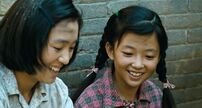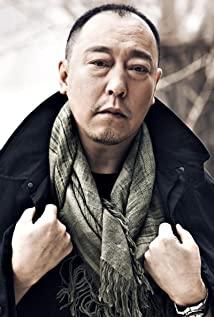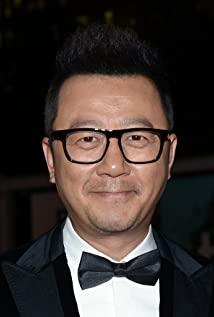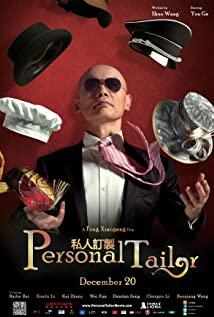"Alive" is Zhang Yimou's sixth and perhaps best feature film , depicting the dramatic changes in Chinese society and history spanning more than three decades from the 1940s to the late 1960s.
So this film compares to Tian Zhuangzhuang's "The Blue Kite" and Chen Kaige's "Farewell My Concubine," both of which are about the tragic chaos that ensues from the same turbulent historical period. But Zhang Yimou's film is different in that it goes beyond social and historical issues to take a deeper, more melancholic perspective, showing the story of ordinary Chinese struggling to live a peaceful, normal life.
Zhang believes that his films focus on universal human issues. And I do think that "Alive" is not only a poetic description of human society, but also a salvation for ordinary Chinese people. This may be one of the reasons why "Alive" is called a great work.
The film about Fugui (Ge You) and his wife Jiazhen (Gong Li) is divided into five parts, each of which is clearly depicted with a clear time interval between each .
Fugui is a carefree, bohemian country gentleman who spends most of his time rolling dice in casinos . His family, including his long-suffering pregnant wife, a young daughter, and his elderly parents, urged him to give up his debauchery lifestyle, but he ignored his gambling addiction. While his wife Jiazhen says she just wants to live a simple life, Fugui himself is drawn to the brilliance of the corrupt environment.
Before long, he gambled away the entire family's fortune , losing everything, including the family house, to Long Er, an insatiable conspirator who played shadow puppets. Soon Fugui was homeless, his father died of a stroke, and his wife and daughter abandoned him. Now he finds himself reduced to selling needles and thread at the local street market.
A few months later, the now reformed Fugui met his wife and their newborn son , and she agreed to take him to her humble abode to restart their marriage. Then, Fugui got Long Er's intact shadow play props and took over the shadow play team, including Long Er's former entourage Chunsheng (played by Guo Tao).
However, just when the situation seemed to be improving, civil war swept across the country , and both Fugui and Chunsheng were forcibly conscripted into the national army to fight against the communist army. After surviving a bloody battle, they were captured by the Communists, and for the rest of the war they performed shadow puppet shows for the army.
When he was released at the end of the war, Fugui returned to his hometown and found his wife , whom he did not want and could not contact during the war. He is now destitute and can only make ends meet by delivering hot water bottles. What made him more painful was that a terrible illness had made his young daughter half deaf and mute .
With the end of the civil war, the New China was established. "Counter-revolutionaries" and landlords are being eradicated, and everyone is being housed in communes under the jurisdiction of local party secretaries. Soon, Fugui witnessed Long Er's trial and execution, and was identified as the landlord for owning Fugui's house. From all this, Fugui and Jiazhen learned that they must keep a low profile - they concealed their background as landowners in the past and swore that "poverty is a good thing".
Years have passed, and now the camera shifts to 1958, when China began a massive collectivization and a campaign to industrialize China by organizing "lots of steel" for each commune. To meet ambitious production quotas, the government requires people to contribute all iron tools and cooking utensils to local smelters and work around the clock.
In this case, in order to save the face of the commune, Fugui ordered his tired younger son Youqing to report to the smelter. When his son fell asleep at work, a brick wall behind him was accidentally knocked over by a truck killing him, which may have been doomed. Chunsheng, an official at the time, begged for forgiveness, but Jiazhen was unable to forgive him, claiming that he "owes her a life".
Then another movement erupted, once again disrupting the lives of ordinary people. In a tense atmosphere, Fugui and Jiazhen learn that even their neighbors have been exiled, and that Chunsheng has been severely investigated and criticized. When Jiazhen saw that Chunsheng might have suicidal tendencies, she sympathized with Chunsheng and reminded him again that Chunsheng owed her a life, implying that he should save his own life for her.
During this period, Fugui and Jiazhen find a suitable husband for their silent daughter Fengxia (Liu Tianchi) - the honest and honest Erxi (Jiang Wu), who is also disabled: limping on foot. The wedding went well, and soon Fengxia will have a baby.
Things seemed to be going well at this point, but tragedy still happened. Fengxia died in front of her tearful mother despite the birth of her child due to hospital conditions and childbirth problems .
Six years later , Fugui, Jiazhen, and Fengxia's son and husband, who were already gray-haired, went to see the graves of their two children. Their tone was completely resigned, but still hopeful for a better tomorrow.
Often, the most interesting stories revolve around a goal, which could be some enemy or villain, who must overcome in the process. When it comes to life, however, there are no definite bad guys and no goals other than simply "living" a normal life without pain .
All the characters in the show are ordinary people trying to play by the usually capricious rules. Even the gambler Long Er is not a real villain. In this case, however, unseen fear is the potentially devastating catastrophe that plagues the Chinese people in this era. Zhang Yimou conveys this fear not through angry mobs or destructive riots, but by describing the anxiety of ordinary people trying to escape disaster, and their attempts to live a peaceful life.
However, no matter how hard they tried to avoid it, trouble came.
So, what is the unseen cause of this fear? Undoubtedly, Zhang Yimou is right, and by dividing the film into distinct historical periods, he proves that film can generally extend to the entire human society, not just the Chinese experience. It has to do with the tragic ways in which human society collapses, with the way wars always break out, with the way pain often goes hand in hand. In any case, it is a tragedy caused by people blindly following social rules to harm others.
The story of the movie "Alive" is adapted from the 1993 novel of the same name, which is Zhang Yimou's practice of adapting modern Chinese novels during this period . Despite Zhang Yimou's choice of these various adaptations, as well as radically different film styles such as neorealism, costume drama, comedy, epic and existential journey, it is interesting that all of his films seem to have an enduring one director's imprint.
Part of the reason for this aesthetic commonality is, of course, Zhang's artistic sensitivity to color and visual space. In addition, he is very adept at using eye contact to maintain a fluid continuity of the scene, even though he often breaks the scene into specific points of view.
Another visual touch that subtly evokes the down-to-earth humanity of ordinary people in this particular work is the constant close-up of freshly cooked food throughout the film . The shots are subtly integrated into the storyline, revealing the vivid characters that are essential to the story in everyday life.
In addition to his visual skills, Zhang uses background music to effectively convey emotional emotions. In "Alive," in particular, the use of traditional Chinese instruments is delicate, and the melancholic theme highlights some of the film's most poignant moments.
These vivid visual stylistic features of Zhang Yimou help engage the audience in the emotional dynamics of the story. That's why we can say that Zhang's films tend to be expressionist and existentialist. But at the same time, in "Alive," the story has a larger, more human theme, which is what elevates the film to an unusual level.
The two main characters, Fugui and Jiazhen, are vividly played by Ge You and Gong Li, but their roles also carry a certain metaphor . Gong Li displayed the low-key, quiet, feminine passion she usually plays in Zhang Yimou's films, while Ge You won the Cannes Film Festival Best Actor Award for his performance.
Jiazhen's role may symbolize the patience the Chinese people have endured for so long . At the end of each narrative act, she has stoically experienced the serious loss and depravity of her life. She is losing all the way, from the beginning of losing her life support, to the loss of her healthy daughter, and then the son died, the daughter died, it seems that all Suffering happened to this hard-working woman, but she still worked hard to live and accept "destiny" in the end.
However, Fugui was initially seen as a feeble character, perhaps symbolizing some aspect of society. In every "act" of the film, his selfish indiscretion always gets himself and others in trouble, but as the story goes, he grows personally. On the other hand, the resilient and kind-hearted Fugui also has a positive side.
Just imagine, from being arrogant at the beginning to losing everything, he went from a rich boy to performing shadow puppets, to a soldier, to an ordinary farmer, and by the end of the film, Fugui has become A good man, not a hero. He resigned himself to his fate and just wanted to live a simple life with his wife.
In the end, when he talked to his grandson, he just hoped that the grandson would grow up and live a happy life - "life will get better and better".
If you like my articles, you can pay attention to my public number:
View more about To Live reviews











